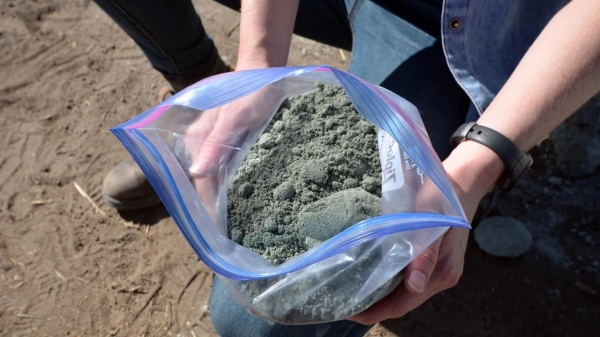Adding crushed volcanic rock to cropland could play a key role in removing carbon from the air.
Adding crushed volcanic rock to cropland could play a key role in removing carbon from the air. In a field study, scientists at the University of California, Davis, and Cornell University found the technology stored carbon in the soil even during an extreme drought in California. The study was published in the journal Environmental Research Communications.
Rain captures carbon dioxide from the air as it falls and reacts with volcanic rock to lock up carbon. The process, called rock weathering, can take millions of years — too slow to offset global warming. But by crushing the rock into a fine dust, rock weathering speeds up. Previous studies have estimated this “enhanced” rock weathering could store 215 billion tons of carbon dioxide over the next 75 years if spread across croplands globally.
But until now the technology hasn’t been field-tested in dry climates.
“These reactions require water,” said lead author Iris Holzer, a doctoral candidate in soils and biogeochemistry in the Department of Land, Air and Water Resources at UC Davis. “Since we’re interested in the global carbon storage potential of enhanced weathering, we need to understand if it can work in these drier climates and if different measurement approaches are effective. We were excited to observe carbon removal in this environment.”
Read more at: University of California - Davis
UC Davis researchers find adding crushed volcanic rock to farmlands can remove carbon dioxide from the air. This 'enhanced' rock weathering works even in dry climates. (Photo Credit: Amy Quinton/UC Davis)




